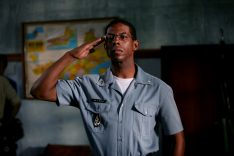The Mysogyny Tango
This title is, for those of you old enough to know what I'm talking about, a tip of the hat to Tom Lehrer, author of the absolutely hilarious "The Masochism Tango." Except that there's nothing funny about "El Pasado," the Hector Babenco film I saw today. The nicest thing you can say about his female characters, with one exception, is that they are all emotionally-disturbed; other words that come to mind are rapacious, pathetic, self-destructive, and Black Widows. At least, he was equally cruel to his male protagonist: good-looking and spineless, his existence seems to be justified solely by his ability to satisfy the ladies' voracious sexual appetites.
 Another movie that is causing a stir everywhere is "Tropa de Elite" or "Elite Squad," by José Padilha, the acclaimed director of "Bus 174." "Elite Squad" picks up where "City of God" left off and it's not a pretty picture (either literally or figuratively), depicting massive police corruption, violence and torture (not only in the hands of the police), and hopelessness as a way of life. Apparently, it innovates in pointing the finger at the upper classes and their drug habits. The most sympathetic character in the film is a black officer called Matias (seen here in regular uniform before joining the special forces), who at a certain point unloads his frustrations on his college mates by telling them that everytime they snort a line or smoke a joint they're helping kill little kids in the favelas (Rio's slums). Of course, it's obvious that the (very) young, skinny, heavily-armed, and doomed traffickers up in the hills are NOT the ones really running the show. If someone truly wanted to put an end to the drug wars in Rio, they would need to follow a trail that most surely leads to the wealthy and powerful.
Another movie that is causing a stir everywhere is "Tropa de Elite" or "Elite Squad," by José Padilha, the acclaimed director of "Bus 174." "Elite Squad" picks up where "City of God" left off and it's not a pretty picture (either literally or figuratively), depicting massive police corruption, violence and torture (not only in the hands of the police), and hopelessness as a way of life. Apparently, it innovates in pointing the finger at the upper classes and their drug habits. The most sympathetic character in the film is a black officer called Matias (seen here in regular uniform before joining the special forces), who at a certain point unloads his frustrations on his college mates by telling them that everytime they snort a line or smoke a joint they're helping kill little kids in the favelas (Rio's slums). Of course, it's obvious that the (very) young, skinny, heavily-armed, and doomed traffickers up in the hills are NOT the ones really running the show. If someone truly wanted to put an end to the drug wars in Rio, they would need to follow a trail that most surely leads to the wealthy and powerful.
Image credit: David Prichard
 Another movie that is causing a stir everywhere is "Tropa de Elite" or "Elite Squad," by José Padilha, the acclaimed director of "Bus 174." "Elite Squad" picks up where "City of God" left off and it's not a pretty picture (either literally or figuratively), depicting massive police corruption, violence and torture (not only in the hands of the police), and hopelessness as a way of life. Apparently, it innovates in pointing the finger at the upper classes and their drug habits. The most sympathetic character in the film is a black officer called Matias (seen here in regular uniform before joining the special forces), who at a certain point unloads his frustrations on his college mates by telling them that everytime they snort a line or smoke a joint they're helping kill little kids in the favelas (Rio's slums). Of course, it's obvious that the (very) young, skinny, heavily-armed, and doomed traffickers up in the hills are NOT the ones really running the show. If someone truly wanted to put an end to the drug wars in Rio, they would need to follow a trail that most surely leads to the wealthy and powerful.
Another movie that is causing a stir everywhere is "Tropa de Elite" or "Elite Squad," by José Padilha, the acclaimed director of "Bus 174." "Elite Squad" picks up where "City of God" left off and it's not a pretty picture (either literally or figuratively), depicting massive police corruption, violence and torture (not only in the hands of the police), and hopelessness as a way of life. Apparently, it innovates in pointing the finger at the upper classes and their drug habits. The most sympathetic character in the film is a black officer called Matias (seen here in regular uniform before joining the special forces), who at a certain point unloads his frustrations on his college mates by telling them that everytime they snort a line or smoke a joint they're helping kill little kids in the favelas (Rio's slums). Of course, it's obvious that the (very) young, skinny, heavily-armed, and doomed traffickers up in the hills are NOT the ones really running the show. If someone truly wanted to put an end to the drug wars in Rio, they would need to follow a trail that most surely leads to the wealthy and powerful.Image credit: David Prichard

0 Comments:
Post a Comment
<< Home